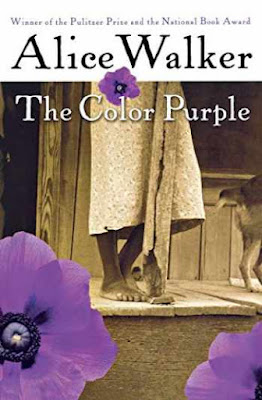There's are many reasons to praise Alice Walker's "The Color Purple" that aren't apparent on the first page. Because of its writing style, the reader is introduced to the protagonist's interiority more than her surroundings. Because of this, the initial passages where she's praying to god are a bit more vague and don't fully convey the complexities of her life. Within the first page is a recounting of a sexual assault for a man who never fully disappears from the story. In some ways, it's a story of moving beyond the trauma of the past and learning to embrace life. This is a story rooted very much in early 20th century America from a perspective not often celebrated. Walker's introspection may be sidelined by practices of a segregated south, but this isn't a story of imprisonment. It's one of hope.
The most radical thing about "The Color Purple" is that this story doesn't center around the tragedies of the Black American life. While they are present, this is a celebration of the self. What starts as something interior and between her and God slowly evolves into a story of identity, chronicling the self as it relates to America and their homeland in Africa. It's a beautiful celebration of rediscovering oneself and accepting the intricacies of the cards given to you. The dysfunction may still be there and certain things may have not worked out, but that doesn't mean that life isn't worth celebrating. By having a happy ending, "The Color Purple" subverts previous centures of Black narratives by proving there's so much more to a story than misery. There's also the hope for the future.
Through simple, conversational language the story comes alive and paints what matters to Walker most. She goes from observing the world around her to slowly become part of it. This is one of the great novels that captures the pitfalls of humanity while realizing that everyone is complicated and flawed. There are chances for life to get better. People can change and become better. It may not come with convenient answers, but sometimes it's important to stop and appreciate it. By focusing on the simple joys in the world, Walker has created a timeless text that captures every aspect of what it means to be happy. It may not always have the most thrilling action, but it still has enough to keep the reader engaged with her sense of self.

No comments:
Post a Comment